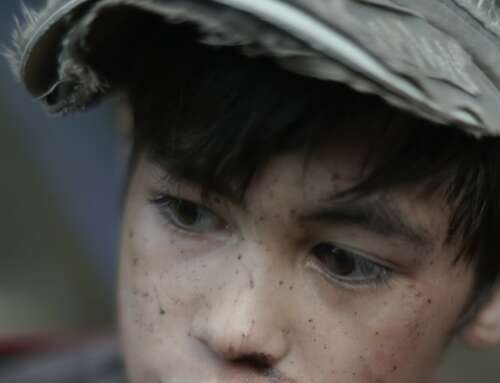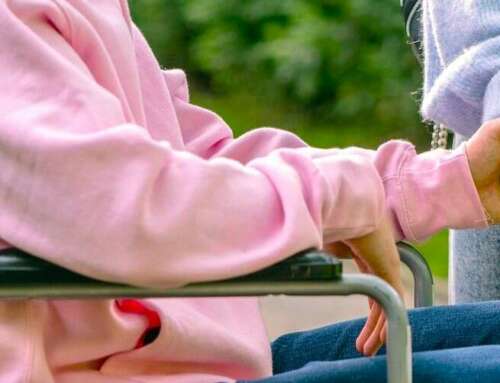In February, award-winning children’s author Morris Gleitzman was named the new Australian Children’s Laureate for 2018–19. As laureate, he will join his predecessors, Leigh Hobbs, Jackie French, Alison Lester and Boori Monty Pryor in promoting the importance of reading.
Morris kindly shared his time with us to discuss the laureateship; why the need for stories is more important now than ever; how he will advocate for the transformative power of reading — and how library professionals are a fundamental part of this process.
Speaking just a couple of days after his appointment, he was excited about how he would use his role to promote reading for young people. ‘I want to make available to as many young Australians as possible a wide range of rich and nourishing reading experiences, with all the support, encouragement, inspiration, resources and permissions that help that happen.’
Morris will take his campaign to parents, decision makers, and people outside the education sphere — those ‘who may have either forgotten how important good stories were to them in their childhood, or maybe those who had the misfortune to not have the opportunity to discover everything good stories had to offer’. This means that his campaign will be targeted at adults as much as children; it is, after all, largely adults who are at the centre of children’s lives and help make reading available to them.
The transformative power of stories
The focus of Morris’s laureateship will be ‘Stories make us; stories create our future’, highlighting the power of good books to inspire empathy, resilience, and positive thinking. Stories are particularly important for young people, having the transformative power to help them make sense of the world. Through stories, young people are often exposed to protagonists who form empathetic capacity and resilience, and follow them on their journey as they grapple with problems, Morris explains. Young readers who share the journey with characters ‘need to continue that process of grappling and not give up and not be crushed or daunted as they make their way to the conclusion of the story’. It is through this shared journey that we absorb the qualities of the characters. ‘There’s an absolute connection between reading good stories and all of the developments that ideally take place through childhood into adolescence,’ he says.
‘I think one of the daunting things that occurs when young people reach around eight, nine or ten years old — the age I specifically write for — is when they no longer allow their world to be wholly defined by the ideas, opinions and information that they get from others. When we reach middle to upper primary, we’re starting to think for ourselves, look at the world in a more independent way and make our own decisions about what strikes us as good or bad, or right or wrong. We’re laying the foundation for our own personal, moral landscape, and it’s a very exciting and important time of our life.
‘Stories have a really important role to play here because, in many ways, that’s exactly what many of the central characters of kids’ stories are doing: developing the capacity for critical thinking and problem solving. There are a few years for each of us where this process has started, but the biological imperative hasn’t hit us yet. It’s wonderful that we have those few years to do some important thinking and broadening of our awareness. I find it a great privilege to contribute my stories to that particular time in my young readers’ lives,’ Morris says.
The urgency for stories remains
The need for students to connect with reading material is becoming increasingly important in our current climate. Morris recognises two aspects that make this so: competing with the distraction of screen culture, and the need to help young people make sense of the fragmented world that is presented to them through channels such as the news media. The role of the author is, in a way, to collect those pieces and assemble them into a more cohesive form.
‘In one sense,’ Morris says, ‘young people today have the world at their fingertips; there is very little that they can’t get a glimpse of. Stories have the opportunity, and therefore the responsibility, to portray a more fully formed view of the world than a lot of those glimpses will give.
‘The news media, for example, has an important responsibility to let us know what is going on in the world. Traditionally, they tend to let us know about the not-so-good things; they reflect, in countless decontextualised little fragments, examples of the worst that we humans are capable of.
‘But,’ he continues, ‘there is another side to human existence that is equally, perhaps more important, and the two sides shouldn’t be separated from each other. And what stories can do, and what I’ve always tried to do in my work, is to look honestly at the worst we humans are capable of, but also to have a part of each story where characters show the best that we are capable of, starting with the love and friendship that, if we’re lucky, is at the centre of most of our lives, through to responsibility, generosity and compassion.’
Morris doesn’t shy away from the difficult topics in his writing. His Felix series, for example, tells the story of a Jewish boy living through the Holocaust — but at the centre of the story is resilience and survival, imagination and friendship. In the series’ first book, Once, Felix comforts his friends with stories from his imagination; and, while bearing witness to the atrocities portrayed in the story, we too allow ourselves to be comforted by the human spirit in the face of extreme adversity.
– Nicole Richardson, Schools Catalogue Information Service
Read more: Stories make us: in conversation with Morris Gleitzman
Image source: Katie Day, Flickr








Leave A Comment